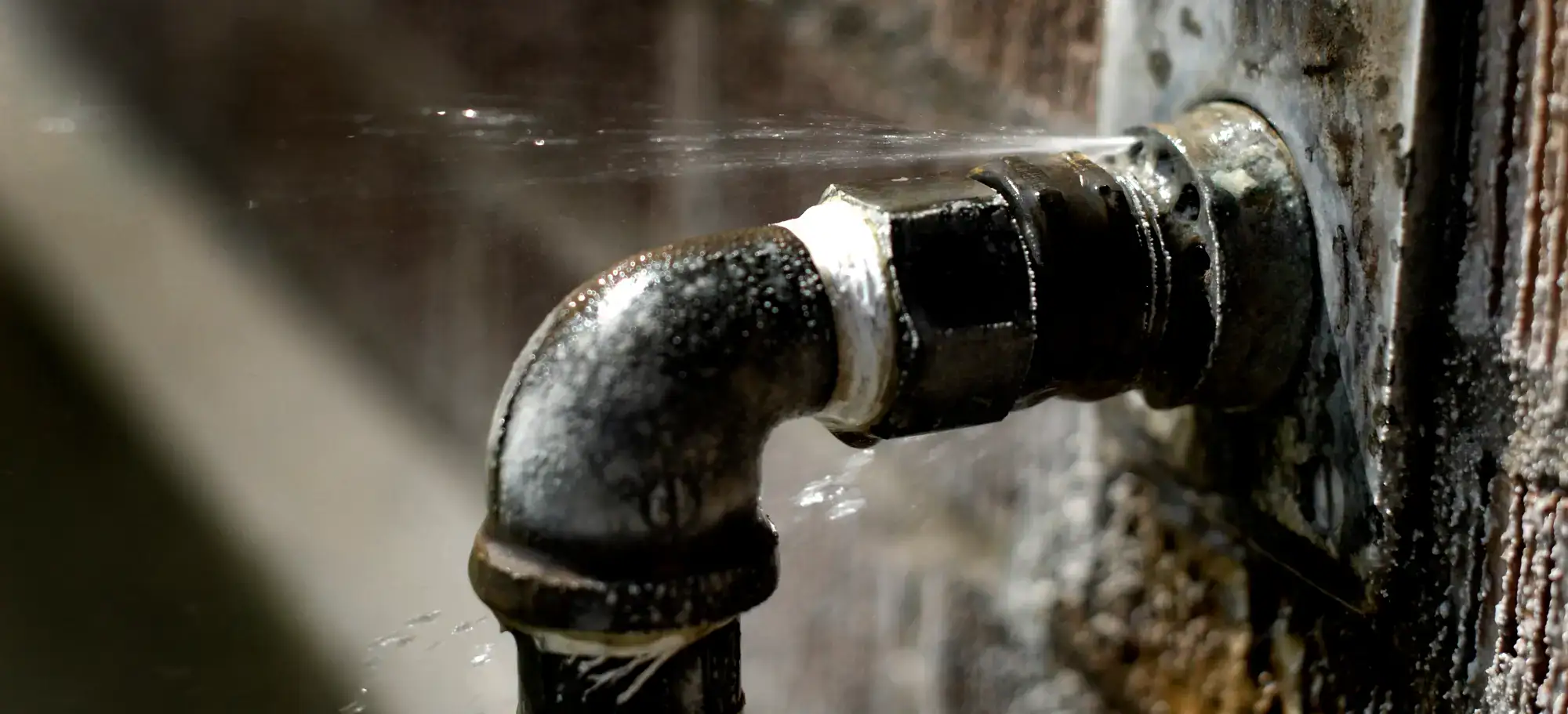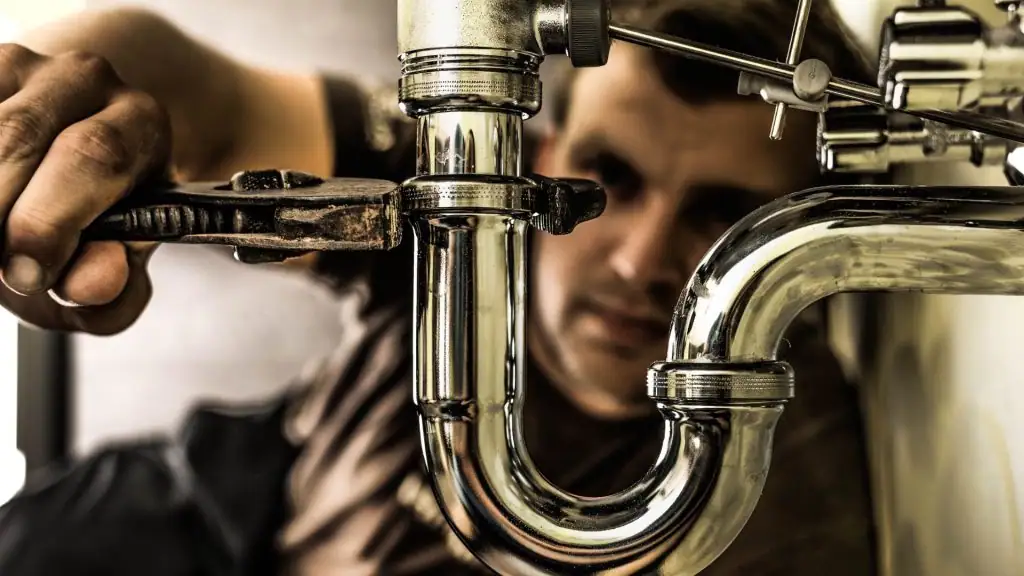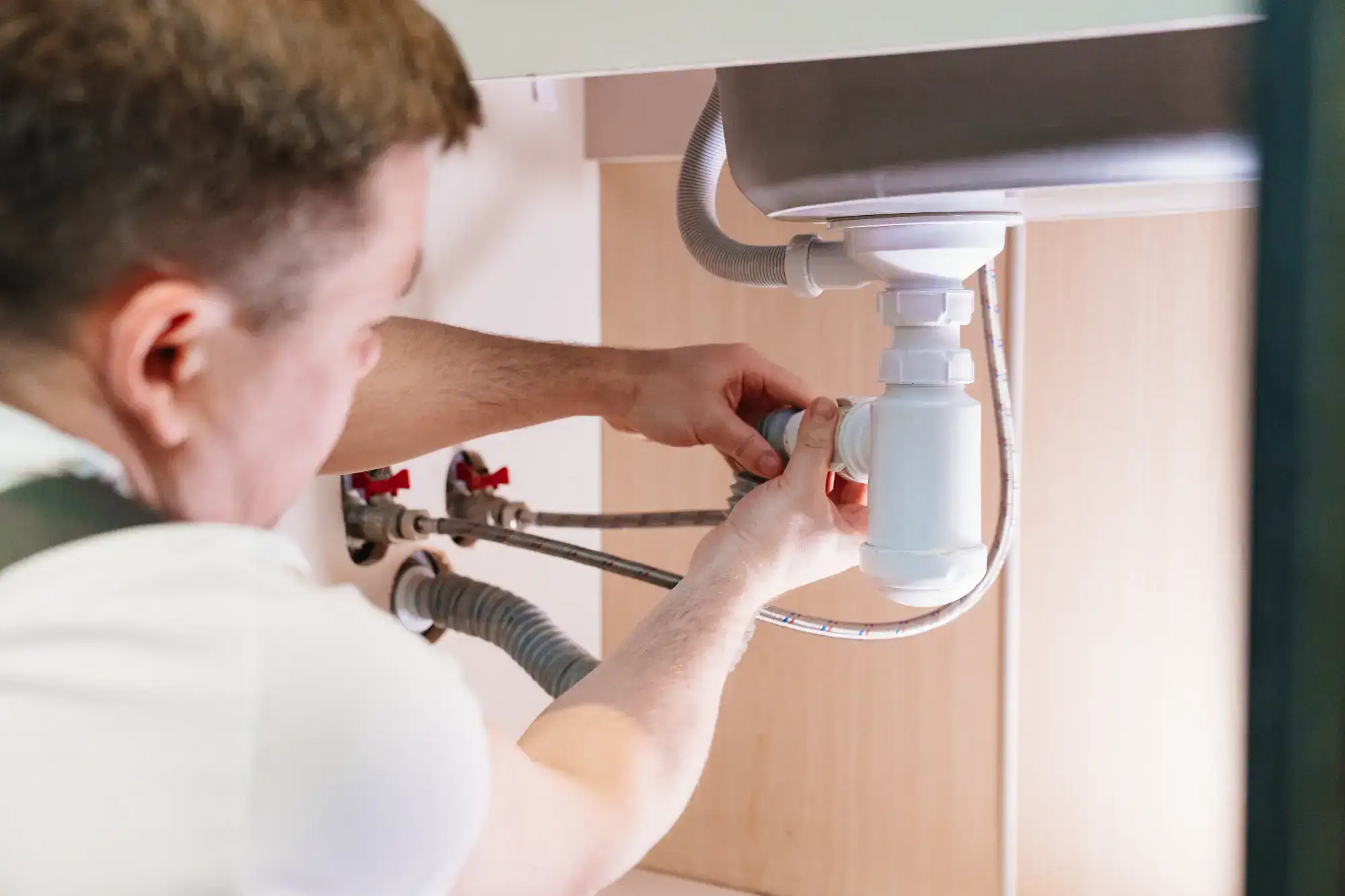Summary:
Immediate Steps to Stop Water Damage in Your Home
The first few minutes of a water leak determine whether you’re dealing with a manageable situation or a catastrophic mess. Your priority isn’t figuring out what caused the leak—it’s stopping more water from making the problem worse.
Start by turning off the water supply to the affected area if you can identify it. Most fixtures have individual shut-off valves behind toilets, under sinks, or near appliances. If you can’t locate the specific valve or the leak is coming from an unknown source, head straight to your main water shut-off valve.
Time matters more than perfection right now. Even if you’re not completely sure you’ve found the right valve, turning off water flow gives you breathing room to assess the situation properly.
How to Locate and Turn Off Your Main Water Shut-Off Valve
Your main water shut-off valve is your home’s emergency brake for plumbing disasters. In most San Francisco homes, you’ll find it near where the main water line enters your house, typically in the basement, crawl space, or near the water meter outside.
The valve will be either a gate valve that looks like a wheel you turn clockwise, or a ball valve with a lever handle that you turn 90 degrees. If it’s a ball valve, the handle should be perpendicular to the pipe when closed. Gate valves require several full turns to completely shut off the water flow.
Don’t worry about being gentle—this is an emergency. Turn firmly until the water stops flowing. You might hear pipes make noise as the water pressure equalizes, which is completely normal.
Once the water is off, you’ve bought yourself time to think clearly and take the next steps. Keep in mind that turning off your main water supply affects your entire house, so you won’t have running water anywhere until the problem is resolved.
If you’re dealing with a hot water leak specifically, also turn off your water heater to prevent it from trying to heat an empty tank, which can cause damage to the heating elements.
Protecting Your Property While You Wait for Help
Your main water shut-off valve is your home’s emergency brake for plumbing disasters. In most San Francisco homes, you’ll find it near where the main water line enters your house, typically in the basement, crawl space, or near the water meter outside.
The valve will be either a gate valve that looks like a wheel you turn clockwise, or a ball valve with a lever handle that you turn 90 degrees. If it’s a ball valve, the handle should be perpendicular to the pipe when closed. Gate valves require several full turns to completely shut off the water flow.
Don’t worry about being gentle—this is an emergency. Turn firmly until the water stops flowing. You might hear pipes make noise as the water pressure equalizes, which is completely normal.
Once the water is off, you’ve bought yourself time to think clearly and take the next steps. Keep in mind that turning off your main water supply affects your entire house, so you won’t have running water anywhere until the problem is resolved.
If you’re dealing with a hot water leak specifically, also turn off your water heater to prevent it from trying to heat an empty tank, which can cause damage to the heating elements.
Want live answers?
Connect with a Sugar Bear Home Services expert for fast, friendly support.
When to Call Emergency Plumbing Services vs. Waiting
Not every plumbing problem requires an emergency call, but water leaks operate by different rules. The key question isn’t whether you need a plumber—it’s whether you need one right now or if the situation can safely wait until normal business hours.
Consider the scope and location of the leak. A dripping faucet that you can turn off completely is annoying but not urgent. A burst pipe flooding your basement or a leak you can’t stop despite turning off valves requires immediate professional attention.
Also factor in your ability to live without water. If the leak affects your only bathroom or you had to shut off water to your entire house, that’s an emergency situation that needs immediate resolution.
Signs You Need a Plumber Immediately
Certain situations don’t give you the luxury of waiting for regular business hours. If water is actively flowing and you can’t stop it, that’s an automatic emergency call. This includes burst pipes, major fixture failures, or any leak where the shut-off valve doesn’t work or can’t be located.
Sewage backups also require immediate attention, both for health reasons and because the damage gets exponentially worse the longer it sits. If you see water backing up into tubs, showers, or floor drains, especially if it’s discolored or has an odor, call for emergency service immediately.
Gas-related plumbing issues are always emergencies. If you smell gas near your water heater, at gas pipe connections, or anywhere in your home, shut off the gas supply if you can safely do so and call both your gas company and an emergency plumber. Never ignore gas odors or assume they’ll resolve on their own.
Electrical hazards combined with water leaks create dangerous situations. If water is near electrical outlets, your electrical panel, or any electrical appliances, turn off power to that area at your circuit breaker and call for emergency service. Water and electricity don’t mix, and the risk of electrocution or fire is real.
Finally, if you’re dealing with significant water volume that threatens your home’s structure or your neighbors’ property, don’t wait. The cost of emergency service is minimal compared to the potential damage from delayed action.
What Can Safely Wait Until Morning
Some plumbing issues, while inconvenient, don’t require middle-of-the-night service calls. A slow drip that you can catch in a bucket and that stops when you turn off the fixture can usually wait for regular business hours, especially if it’s not your only water source.
Minor leaks under sinks that you can control with the fixture shut-off valve are typically non-urgent, provided you can contain any water and the leak isn’t getting worse. Keep monitoring the situation, but these often can wait for a more convenient appointment time.
Toilet issues that don’t involve active flooding can often wait, especially if you have another bathroom available. A toilet that won’t flush or fills slowly is inconvenient but not an emergency unless it’s your only toilet or water is overflowing onto the floor.
However, don’t let cost concerns override safety and property protection. Emergency service costs more than regular appointments, but it’s significantly less expensive than major water damage restoration. When in doubt, err on the side of caution and make the call.
Remember that even non-emergency situations can escalate quickly. If a minor leak suddenly gets worse, if you discover additional damage, or if your temporary solutions aren’t working, don’t hesitate to upgrade the situation to emergency status.
Your Next Steps After a Water Leak Emergency
Water leaks test your ability to think quickly under pressure, but following these steps gives you the best chance of minimizing damage and costs. Remember that stopping the water flow comes first, protecting your property comes second, and everything else can wait until you’ve handled those priorities.
The most important thing to remember is that you don’t have to handle this alone. Professional plumbers have seen every type of leak imaginable and can quickly identify not just how to fix the immediate problem, but how to prevent it from happening again.
When you’re ready to get your plumbing system back to normal, we at Sugar Bear Home Services have been helping San Francisco homeowners through these exact situations for over 20 years. Our experienced team understands that plumbing emergencies don’t wait for convenient timing, and we’re here to help you get your home back to normal as quickly as possible.




